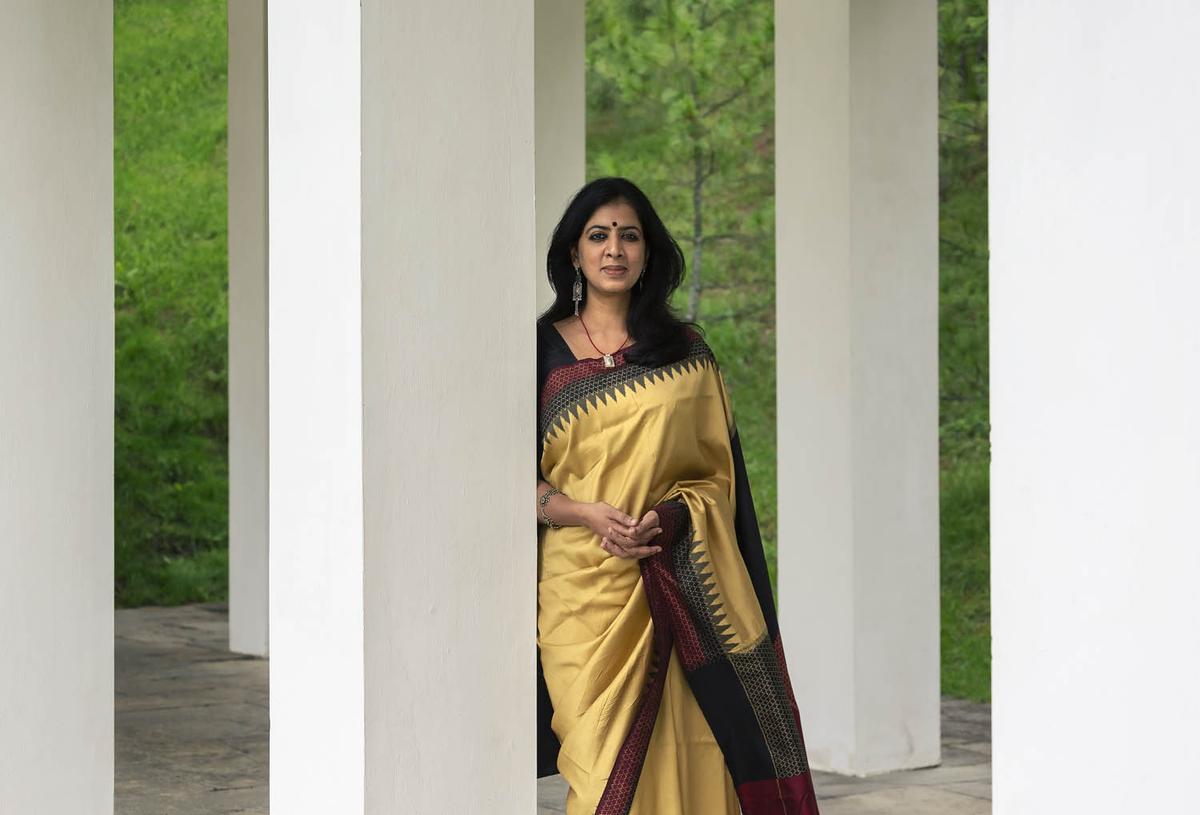Poetry can be a refuge, but it can also pull the rug out from under you – throw you into the air or leave you lying on the ground with your assumptions shattered. Wild Womenthe anthology of sacred Indian poetry, edited by Arundhathi Subramaniam, achieves both through the sheer power and diversity of voices it contains. The collection’s all-encompassing female voice overturns all previous notions of what constitutes sacred poetry, uncovers a realm of experience never before brought together in one place, and gently offers pointers for redefining avenues of refuge.
At the book launch in Bengaluru by Wild WomenArundhathi called this book an attempt to “rediscover a powerful lineage.” She wanted the poets whose voices we have barely heard over time “to be named and given the dignity and attention they deserve.” She began with an “elegantly curated list of 20 to 25 poets,” but worked her way through as research revealed at least twice that number and demanded inclusion. “I think this was a parallel, subterranean stream waiting to be recognized,” she says.
She wanted to showcase the work of women of very “different temperaments, backgrounds, orientations, and women who have made very different life choices.” So in this book you will find “the voices of Buddhist nuns alongside those of Vedantins, Bhaktas, Sufis, Tantrikas, and more. You will find poets – some intellectual, some devout, some meditative, and some more ecstatic.”
Whether they wore ochre, blue jeans or simply their own skin; whether they were alone, in a religious order or as householders with their partners as spiritual guides – she “wanted to honor the choices of each and every one of these spiritual seekers.”
Arundhathi Subramaniam presents the work of women with very different temperaments, backgrounds and orientations. | Photo credit: Special arrangement
In a brief email interview, Arundhathi says the seed for this book was planted while she was working on an earlier volume of bhakti poems. Eating God. It bothered her that the famous female saints she read about “seemed to be devout devotees, cheerful singers, and docile followers… and were never portrayed as fierce spiritual warriors, wise foremothers, or glorious ancestors.”
However, the concrete idea for this anthology arose when she curated a festival for music and sacred poetry entitled Wild Womenat the National Centre for the Performing Arts in Mumbai in 2019. As the festival took shape, she discovered a “vast number of largely undocumented, unknown women – wild, wise and wonderful… who have been ignored or completely erased by religious and rationalist narratives. The intensity, passion and irreverence of their work took my breath away!” she says. Wanting to learn more about this “great mystical sisterhood”, she set out to create a work that “acknowledges their uniqueness and celebrates them in polyphony”.
However, there were many challenges. “I had no scholarship, no research grant. It was a passion project – perhaps in some ways a mad project, fuelled largely by my own eccentric curiosity. Along with the rigours of research, it also meant commissioning translations, which entailed endless email exchanges with translators. The content of this correspondence ranged from discussing general approaches to translation to sometimes pondering a single word,” says Arundhathi. The “biggest challenge was the size” as the compact list grew to 56 poets! Although she “enjoyed the immersion and discovery, the relentless, endless” nature of the project frustrated her. “I considered giving up a few times… but the poems of some of these extraordinary women – Bhadda Kapilani, Lakshminkara, Jiradei, Janabai, Shenkottai Avudai Akkal, Habba Khatun, Tarigonda Venkamamba and others – kept drawing me back. And murmuring quietly to myself, I would continue the journey!” she says.
For her, the greatest gift of this trip was the women themselves – “wild, brave, sometimes outrageous – not reserved or domesticated, but with backbone, nerve and amazing chutzpah.” The project became “an opportunity to redraw a family tree, to rediscover a lost genealogy, an erased history of female mentorship.”
Arundhati with Bharatanatyam exponent Alarmel Valli and the well-known Carnatic singer Bombay Jayashri at the launch of Wild Women in Chennai | Photo credit: Special agreement
Arundhati revels in the gifts showered on her by poets like Punnika, the slave Buddhist nun who confronted a ritual Brahmin with questions about karma 2,500 years ago, or the voice of the 17th-century Kashmiri mystic Rupa Bhavani, who declared that she would never bow to the divine because she was aware of the sacred within herself. “In a fractured world, it helps to remember those who refuse to separate flesh and spirit,” says Arundhathi, “women who acknowledge the wisdom of their bodies and break through orthodox ideas about saliva and menstruation.”
While the first section of Wild Women is more than impressive as it captures the voices of women who owned their skin in all its fullness. The second part of the book focuses on women as protagonists rather than poets. The third part highlights the goddess – “a wild woman who never completely disappears.”
This book is a rare treasure because it makes up for centuries of neglect and forgetfulness. It does not march with the flag, but sings loudly and joyfully. The colors it throws into the air – if we can call the poems that – have too many shades to name. And yet the undeniable success of this book lies in the way it immerses us in those hues – leaving us both satisfied and newly restless.
This is a premium article available exclusively to our subscribers. You can read over 250 such premium articles every month.
You have reached your limit for free articles. Please support quality journalism.
You have reached your limit for free articles. Please support quality journalism.
You have read {{data.cm.views}} out of {{data.cm.maxViews}} free articles.
This is your last free item.




